A “good” CV or a “nice” CV no longer cuts it. To really stand out from all the other candidates, you need a “great” CV and that’s precisely what we have in store for you with our CV writing tips and tricks, and more!
- What is a CV and what makes a good CV?
- 15 topnotch tips for a good CV
- 1. Work on the basics before anything else
- 2. It’s all in the presentation
- 3. Mastering tone and voice
- 4. Optimal CV length
- 5. Writing CV according to the job description
- 6. Making yourself fit for the role
- 7. Using headings to your advantage
- 8. Displaying your achievements to attract and retain attention
- 9. Not overloading your CV with too much info
- 10. Using expert language and telling the truth
- 11. Include references
- 12. Make consistent updates
- 13. Add a personal statement
- 14. Appealing to the eye
- 15. Add keywords
- Best CV Tips To Try Now
- FAQs
What is a CV and what makes a good CV?
We all know what a CV is, right? It’s got your full name, employment history, achievements, education, interests, etc. and all that jazz, for the HR manager to consider.
Writing a great CV can easily be one of the most challenging aspects of looking for a job.
Did you know that the vast majority of employers scan through your CV only for a few seconds, followed by either a quick shortlisting or throwing it straight in the bin? Some are even using AI-powered software now to speed up scanning CVs, especially when they have hundreds to even thousands of CVs to sift through.
Listen – writing a great CV is not like writing down a groundbreaking formula for splitting the atom. Anyone can do it as all you need is the right approach.
15 topnotch tips for a good CV
As a hopeful candidate, you have likely scanned almost every corner of the internet while researching “what is a good CV”. While there are plenty of top CV tips available online, these ‘15 CV top tips’ that we have for you is almost guaranteed to seal the deal:
1. Work on the basics before anything else
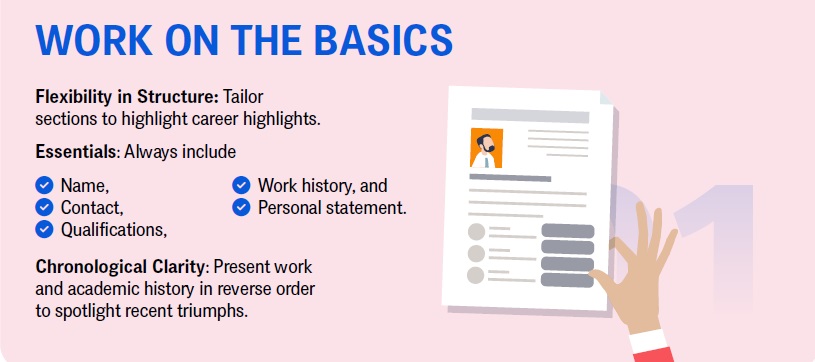
There are many brilliant ways to write the perfect CV. However, there’s no fixed structure and this has been intentionally kept flexible so that you can add, delete, or move around sections to make specific aspects of your career stand out.
With that said, some sections will have to remain where they are always placed – e.g. your name, contact information, qualifications, employment track record, personal statement, and so on. Failing to include any of these, not including them in the right spot, or leaving inaccuracies and/or errors within them can be a costly mistake!
While we’re on the subject of basics, understand that HR managers want to see your work history and academic achievements in reverse chronological order as well. If you think about, it’s actually wise to lay out your experience in this fashion as it showcases your most recent achievements first, letting the HR manager or recruiter know what the height of your career has been so far.
2. It’s all in the presentation
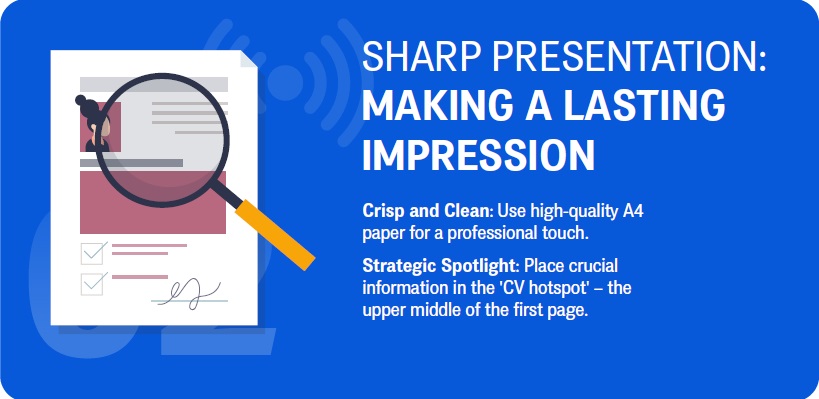
A great CV will be clearly and carefully presented, printed on a crisp and clean piece of A4 size paper. This is one of the best CV tips we can give anyone yet it is often overlooked!
The layout should look clean, professional, and well-structured. So, your CV should never be presented in a folded or crumpled piece of paper. Place your crisp piece of paper in a neat and presentable A4 envelope.
In terms of presentation, it’s also worth talking about the ‘CV hotspot’ – i.e. the upper middle section on the first page as that’s where the recruiter’s eye will typically fall. Boom – include your most important information here, like your full name and email address, how to reach you via phone and all that.
3. Mastering tone and voice
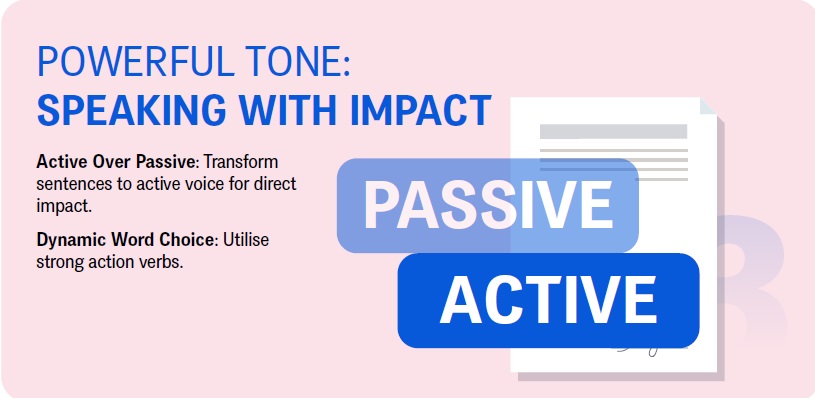
The active voice is the best way to show prospective employers what kind of impact and success you achieved in past roles, and also prove how you can do the same in your new role. Now, this pretty much comes down to how you play with certain sentences within your CV.
For instance: “All digital marketing campaigns were overseen by me” sounds a bit off, doesn’t it? It’s always better to say: “I oversaw all digital marketing campaigns”.
The active voice sounds snappy, direct, and generally more concise compared to the passive voice. So, go through your CV, and take out all the passive sentences, replacing them with active ones to ensure your points hit home in a more impactful way.
Also, a great CV will incorporate a selection of powerful words to highlight your achievements, capabilities, and potential, such as generated, maximised, spearheaded, fostered, etc. You get the idea!
Being familiar with different communication methods can also help to tailor your CV’s tone and voice.
4. Optimal CV length
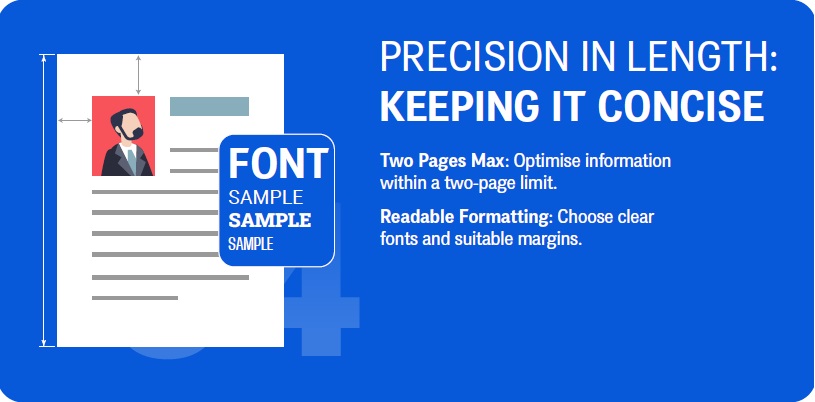
The optimal length for a CV is two pages. But let’s say you have a rather illustrious career history you want to showcase, it can be challenging and even tricky to find the right sweet spot.
“Experienced job seekers” tend to cram every detail they can onto the two pages. The end result? Tight margins, tiny hard-on-the-eyes font, and big chunks of annoying text. We need to lose all that so that the words on your CV have enough room to breathe.
A font size of between 10 and 12 is fine for the main body text, while 12-14 is okay for headings. Keep your page margins between 1.27cm and 2.5cm. Adjust line spacing to 1.15 or preferably 1.5 to give everything a professional and balanced appearance. So, in short:
- Limit your CV to two A4 pages
- Keep things short, sweet, and concise
- Highly the necessities only
5. Writing CV according to the job description
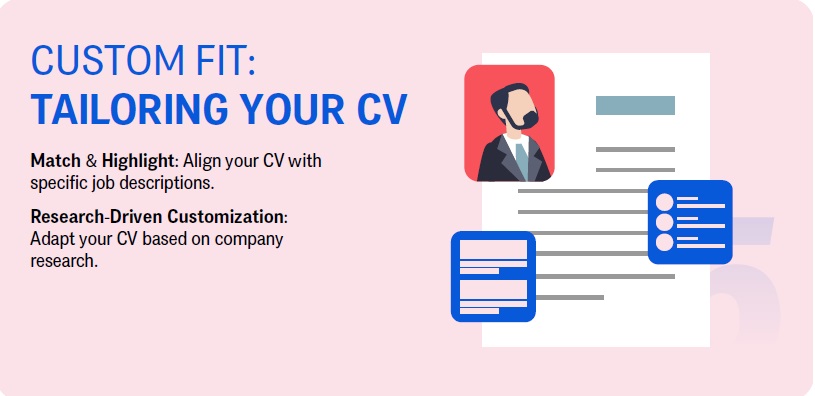
We’re all guilty of this: spit out the exact same CV to multiple employers just to save time.
Get in the habit of writing your CV for the specific role you’re applying for. How do you do that?
By researching the company and using the job ad to understand precisely the skills you should highlight first in your CV.
Doing this not only makes your life easier but also the recruiter’s. After all, they’re looking to match candidates with the job description they put out, so give them something they can’t turn down!
Planning to change careers in the middle of a job hunt and need career advice? No worries, people do that all the time. Here’s a useful read on how to change careers.
6. Making yourself fit for the role
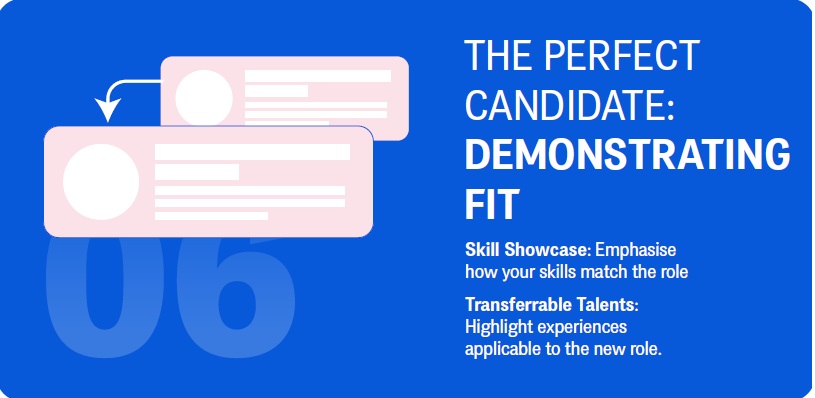
How do you know if you are truly fit for a specific role?
All the clues are in the job description, friend! Carefully read the details from top to bottom. Take notes where you need to, write down bullet points, and highlight every single detail which you can satisfy with your skills, including the ones you can’t. The areas where you are lacking, fill those gaps by mentioning the skills you do have.
For instance, if you had a brief stint at a retail store where you managed things in a storage room or helped increase sales, then mention that on your CV, even if you did that just to pay for college tuition. Here are some examples:
- Increased in-store sales by 12% in 6 months.
- Organised and categorised storage supplies, helping the business sell faster during busy seasons.
- Took new staff under my watch and trained them to cope with challenges – or something along those lines.
This demonstrates that you’ve built certain skills which may be transferrable to the role in question.
7. Using headings to your advantage
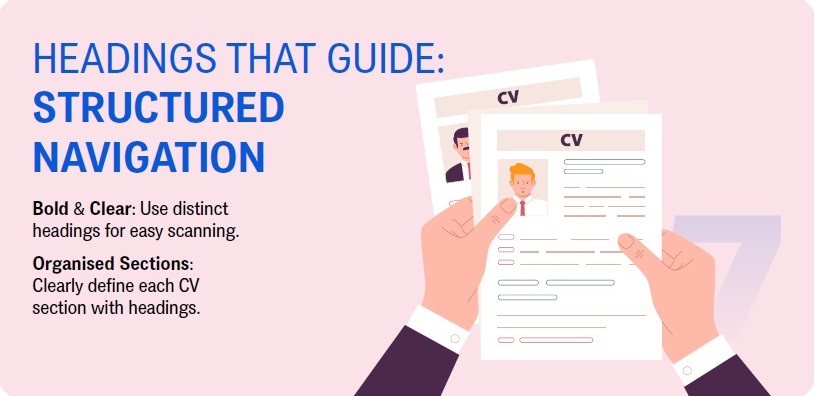
Recruiters and HR managers love big and bold headings that stand out! Without them, they often struggle to navigate through the one or two-page document quickly. This will make you lose points with them.
There’s plenty of research which indicates that recruiters and prospective employers barely spend a few seconds scanning each CV – in most cases, just 6 seconds or so! That gives you a very small window to get their attention.
Introduce each section with clear headings, and a font type that’s not only clean and professional looking but also easily to scan. Bolding headings works well, as does increasing the font size or even underlining each heading. These last two tweaks alone are better than making your headings bold.
However, you can bold specific pieces of information, such as job title, company name, and employment date, for instance. Either way, make each role as well as achievement under the employment and education section stand out.
8. Displaying your achievements to attract and retain attention
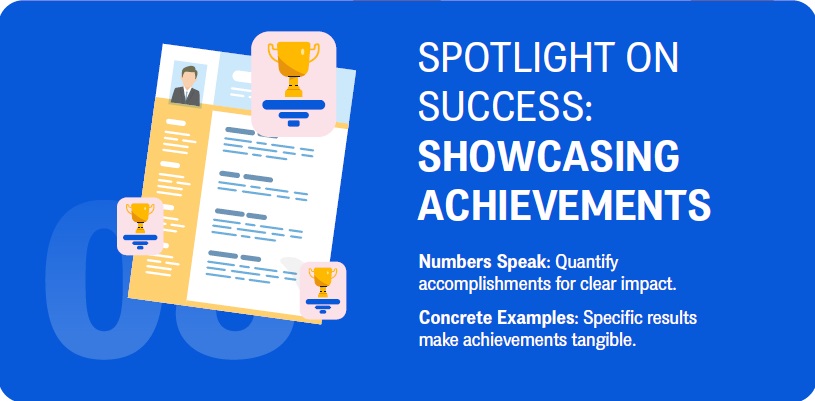
One of the simplest ways to quantify your achievements, abilities, and accomplishments in a way that attracts the recruiter’s eye is by using numbers. When you use tangible numbers to support each achievement, HR managers/recruiters can easily understand the potential impact you might make in your new role – they already know what you’ve achieved in a similar role in the past.
Refer to point no. 6 – that’s exactly what you want to do in order to highlight achievements in numbers. We can always do with more examples though:
- Instead of saying “worked overtime to keep the company’s network online”, you should say “achieved a 99.9% uptime for the company’s network by implementing and tweaking the latest network maintenance system”.
- Rather than saying “kept customers satisfied”, say “reduced customer bounce rate by over 15% during a 6-month sales period”.
- “Increased sales” won’t cut it so instead, say “achieved a sales boost of 60% during the Holiday season”.
So, basically, anything which showcases your productivity, the responsibility you undertook, and how you met targets. Speaking of productivity, here’s a really great read on how to increase productivity.
9. Not overloading your CV with too much info
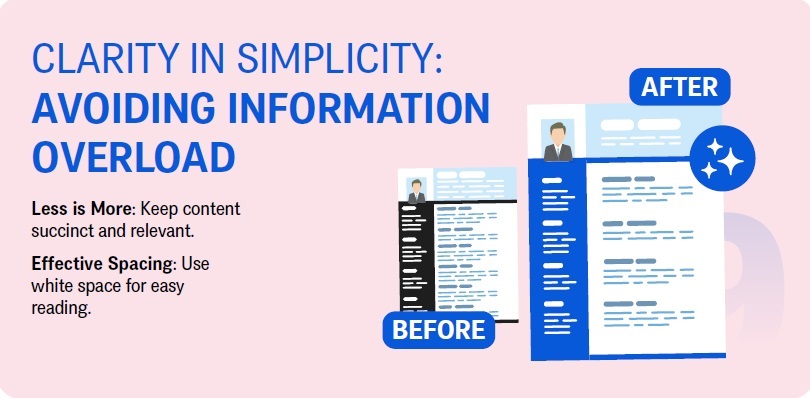
We’ve already discussed how important it is to make the recruiter’s life (and yours). This directly applies to your CV’s overall aesthetics too.
It needs to be easy on the eye, allowing your recruiter to find the desired information within seconds. Therefore, use short and to-the-point sentences and bullet points where applicable. Leave a reasonable amount of white space between categories and around the text in each category. Information on a CV that is clearly presented and easy to read will always win hearts and minds!
10. Using expert language and telling the truth
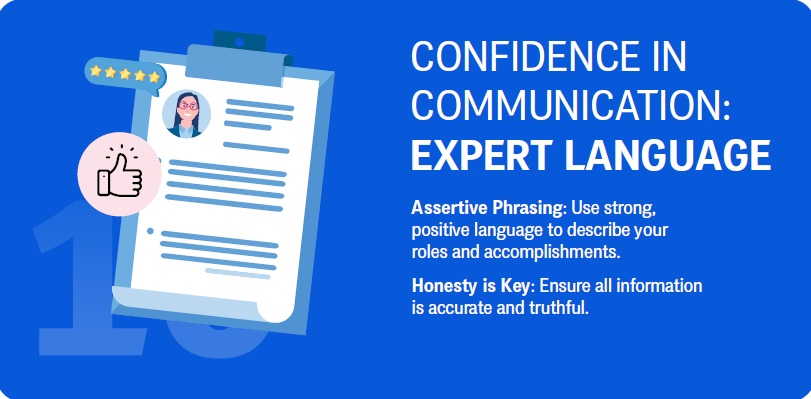
What’s the right CV language? This has got to be one of the most valuable tips for a good CV:
Always use positive and assertive language. Words like “organised”, “developed”, “spearheaded”, etc. indicate that you were in a position of authority where you met the desired goal as per expectations.
Take a good look at the skills you acquired from all your jobs, including the odd jobs you did or the ones you haven’t included on your CV due to whatever reason. List those skills using the kind of positive, assertive, confident, and professional language that recruiters love to hear!
Also, don’t make anything up. This is a dire mistake which can land you in a lot of hot water as nearly all employers will check your background and references.
If you need a little help with using expert language in CVs, consider taking online English courses.
11. Include references
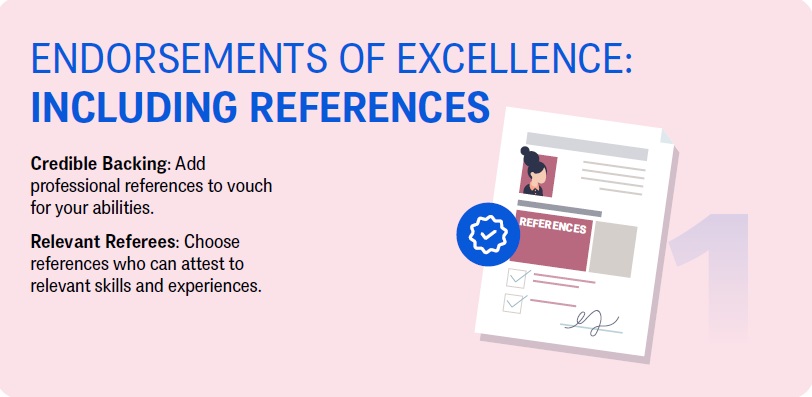
References in your CV should only be from individuals or parties whom you have actually worked with in the past. In other words, people who can directly vouch for you in terms of skills, experience, competence, etc.
If this is your first job, you can still include references from your teacher or tutor. Include at least two references.
12. Make consistent updates
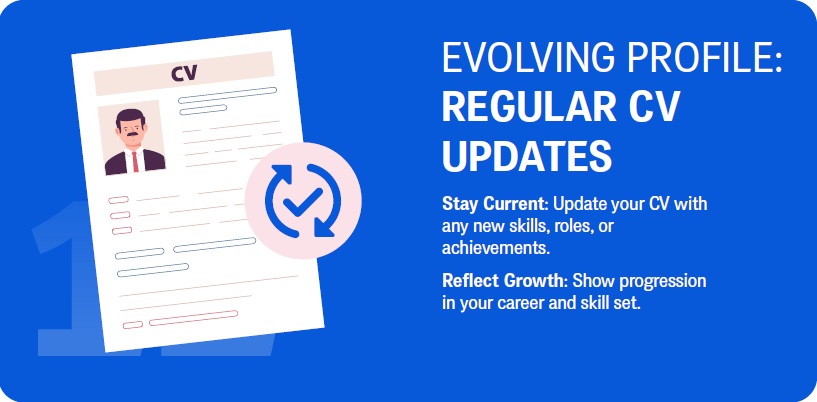
Your CV should always be up-to-date. That goes for both when you’re actively looking for work and when you’re not.
Every time you reach a milestone in your career or achieve something remarkable, but that down in your CV!
13. Add a personal statement
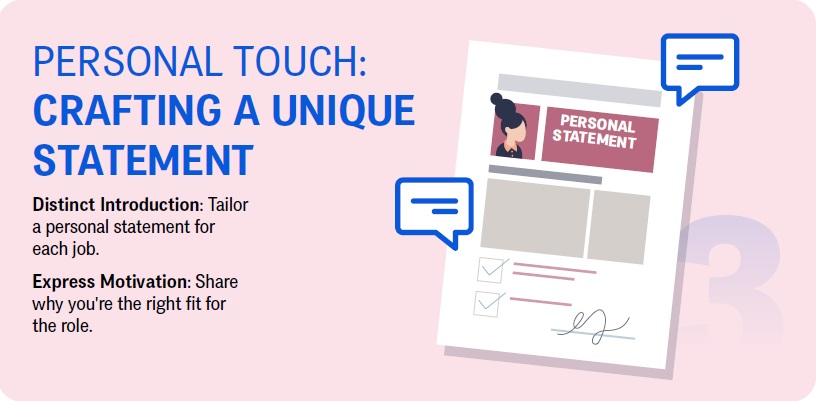
While we stressed earlier on the fact that your CV should be tailored to each job role, in some cases, it might make sense to make a general one. However, you’d definitely want to add a unique personal statement to each application, explaining why you are the right candidate for the job.
If you want to know how to write a personal statement, this read can help you get started.
14. Appealing to the eye
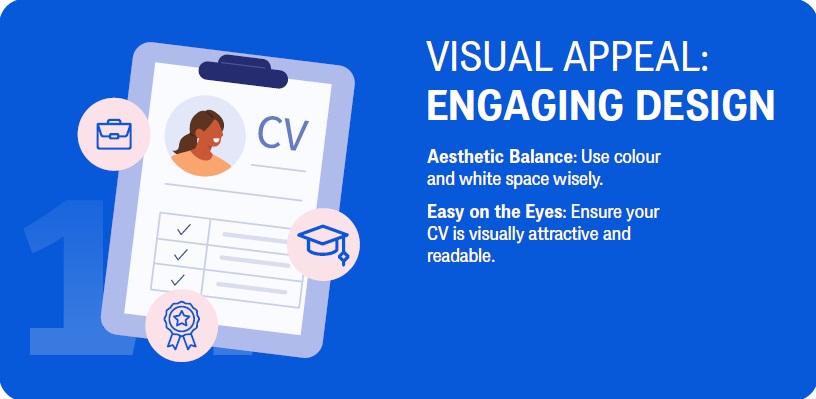
We have likely covered this point already but we it’s worth stressing on this again:
Recruiters and interviewers have probably seen every ‘make and model’ of CVs. Making yours stand out in a unique way is always a step forward.
Colours, for example, shouldn’t be used too liberally and learn to separate content using the appropriate amount of white space. Use bold headings where necessary, and always use bullets instead of long, draggy sentences.
15. Add keywords

In the digital job market today, recruiters will mostly find your CV in an online portal or job site, so keywords are really important.
Plus, specific search terms in the job title and description needs to match those in your CV so that it pops up easily on a recruiting company’s internal search engine.
Let’s say you’re applying for a position in digital marketing; mention terms like “SEO” and “keyword research” or “leads generation” wherever appropriate.
Best CV Tips To Try Now
By now you know what makes a great CV. With these CV tips and tricks, some of which are the best CV tips at the moment (if we do say so), you’re sure to nail that job role you’ve been eyeing for so long. for any uncertainty, have a look of what not to include on your CV.
Good luck!
FAQs
How do you grab attention on a CV?
Use a clear layout with bold headings.
Start with a strong personal statement or professional summary.
Highlight key achievements relevant to the job.
What might put employers off a CV at first glance?
Poor formatting and cluttered text.
Spelling and grammatical errors.
Irrelevant information or lengthy descriptions.
How do you stand out on a CV?
Tailor content to the job description.
Use specific examples and quantifiable results.
Include unique skills or experiences relevant to the role.
What is the most successful CV format?
Reverse-chronological format, listing recent experiences first.
Clear, logical structure with distinct sections.
Consistent formatting and professional style.
Sources
Lewis, N., (2020) 10 things NOT to do on your CV. Jobs.ac.uk. [online] Available at: https://career-advice.jobs.ac.uk/cv-and-cover-letter-advice/10-things-not-to-do-on-your-cv/ [accessed 21/12/23]








